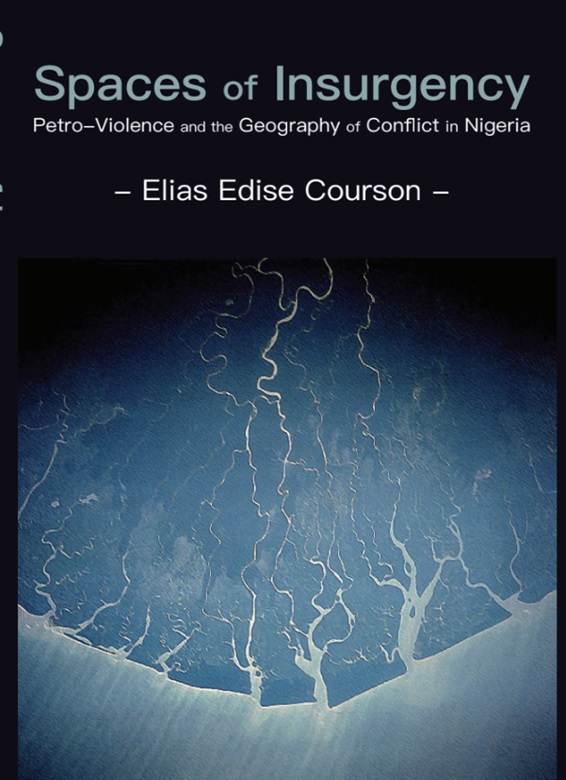written by Elias Edise Courson
The dominant scholarly and policy discourse on the insurgencies and conflicts in Nigeria’s oil-rich Niger Delta has been significantly shaped by the ‘resource curse’ narrative. This influential framework, deeply integrated into wider debates concerning neoliberal globalization, security, and development (as evidenced by the World Bank’s 2011 World Development Report on security, conflict, and development), positions the Niger Delta as a key case study. The region’s unique context – a global oil and gas industry operating within a pluri-ethnic federal system and a complex social field characterized by a range of contentious struggles (from chieftainship disputes to electoral and territorial conflicts) – seemingly reinforces this narrative. However, this book argues for a necessary shift in focus towards a historical and spatial analysis of crisis from the 19th century to the present. Such an approach, it contends, is crucial for understanding the deep-seated and unresolved animosities that underpin contemporary tensions in the region. By critically interrogating resource curse narratives in the Niger Delta conflicts/insurgencies that have emerged since the 1990s, this book demonstrates the layered and historically contingent nature of these conflicts. Employing an interdisciplinary and comparative methodology, it reflects on the specific ways in which political violence and the security-development nexus in Africa – a subject of considerable academic attention since the 1980s – are situated within broader global patterns of knowledge production. The central contribution of this book lies in its analysis of how spatial dynamics, particularly the interplay between west and east and inter- regional politics, are fundamental to a more nuanced understanding of crisis in the Niger Delta and beyond.


| ISBN | 9789956003693 |
| Pages | 444 |
| Dimensions | 229×152 mm |
| Published | 2025 |
| Publisher | Langaa RPCIG, Cameroon |
| Format | Paperback |

